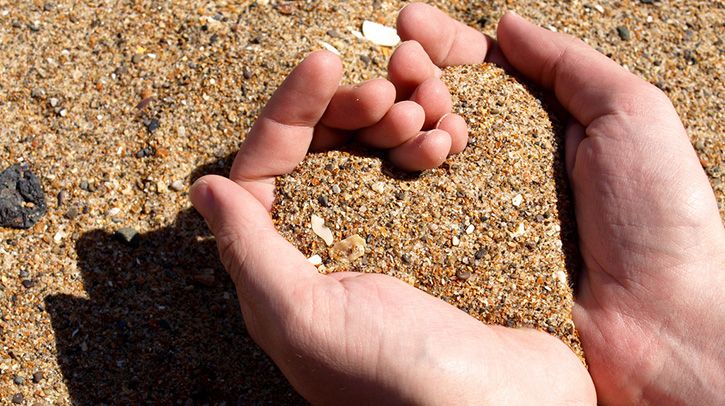Finding the Unexpected in New Orleans: Love and a Life’s Purpose

When Amanda met Ross, it was 2007 in post-Katrina New Orleans.
It had been two years since the storm had washed ashore and the levees had failed, but many people were only beginning to return home. Amanda was working as the intake coordinator and volunteer manager for the Episcopal Diocese of Louisiana then, and she remembers that there were still a lot of stray dogs around the city that summer – pups who had been separated from their humans one way or another and didn’t have anywhere to go.
To the consternation of her landlord, Amanda had become smitten with one that showed up with her college pal Katie Mears, who had come down to New Orleans just a few months after the storm and who had invited Amanda to come join the rebuilding effort. Unable to keep the dog at her place, Amanda asked the new intern, Ross, to pet-sit while she was out of town… and the rest, you could say, was history. A dog-share turned into love, which over the course of the next few years turned into another dog, and a wedding, and two babies and a wonderful life together.
But taking the shortcut to the happy ending leaves a lot of the story out. In fact, it leaves New Orleans out. And although Amanda and Ross left the city in 2009, their relationship and their career paths are so clearly rooted in the time they spent there, that to truly understand their story it is necessary to go back to when they met.
Post-Katrina New Orleans in 2007 was still very much in a state of disaster, but rather than flood waters, people were now besieged by problems caused by the amount of time it had taken for a response to be put together. In addition to immediate issues such as sham contractors preying on people desperate to get back in their homes, Katrina exposed and worsened people’s personal issues with finances, family relationships and physical and mental health, to name a few.
“My job was to go with homeowners through the steps of rebuilding and making choices about how their house would be rebuilt,” Amanda says, “but it was also a lot like being a social worker, spending lots of time with them and learning about not just their house stuff but about family stuff, health concerns. There were a lot of things I could listen to and be supportive about, but couldn’t actually do a lot about.”
Over the months, though, Amanda learned that just listening and being a supportive presence were actually hugely helpful. “In my work now as a nurse in the burn center at Regions Hospital in St. Paul (Minnesota), I see a common thread. There’s a lot to do task-wise, but also just being present for people at a difficult time, even if you can’t fix things – it’s not easy to point to, but it’s really important.”
For Ross, who became the construction manager, working with people who had spent all their recovery assistance on misrepresented repairs fueled a passion for honesty and integrity that continues in his trade as a professional carpenter. “The more I learned what I was doing, the more I realized what was being done wrong, both in terms of carpentry and contractor-client relationships,” he says. “Though the degree I run into this is much less extreme than we saw in NOLA at the time, I now feel a responsibility to change that wherever I am.”
Together, Amanda and Ross’s work helped 50 individuals and families regain their homes, and it transformed their lives as well, setting them on a trajectory that neither Amanda (an aspiring radio journalist at the time) nor Ross (an aspiring grad student) could have anticipated.
“With the stress of our work, I think Ross and I grew closer faster than people do under normal circumstances,” Amanda said. “I’m glad we were able to be there for each other when we both needed a strong support system.”
Ross agrees: “The gravity of the experiences we had, both good and bad, cemented our relationship into something strong and permanent faster than I think either of us expected. By the end of our tenure in NOLA I knew that wherever we went next, we’d be going together, and that the time we spent in Louisiana would inform what we did and how we did it for years to come.”
 Faith Rowold, is the Communications Officer at Episcopal Relief & Development.
Faith Rowold, is the Communications Officer at Episcopal Relief & Development.
Images: Top, “Sand Heart” by Alice is licensed under CC BY-NC-ND 2.0. Middle 1, group photo of Episcopal Diocese of Louisiana staff and volunteers. Amanda holding the couple’s first dog, Lola, and standing next to Katie Mears. (Photo courtesy of Eric Warden.) Middle 2, woman in Gentilly working alongside volunteers. Middle 3, Amanda working in the Episcopal Diocese of Louisiana’s office. Last, Ross installing trim at a worksite.






